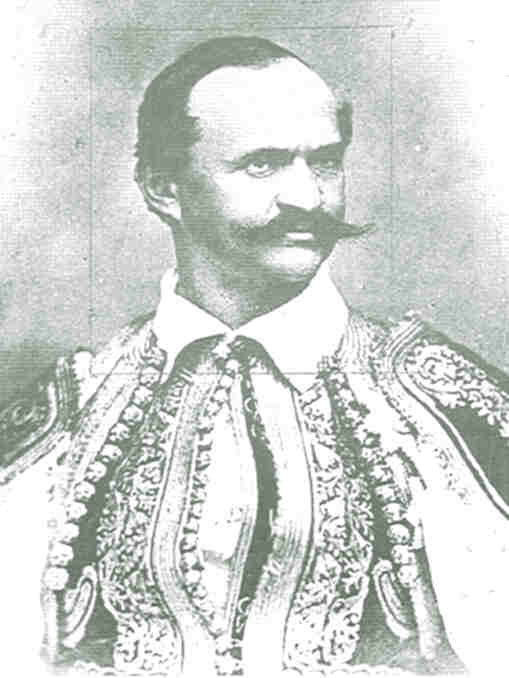 |
||
|
Otto's Abdication |
||
|
ON 12 OCTOBER 1862, King Otto of Greece was forced to abdicate by revolutionaries who, in mob-like fashion, refused to allow the state ship to dock in Nafplio's harbour. Otto and his wife, Queen Amalia, were advised by ambassadors of the Great Powers to abdicate. The following day he left Greek waters, never to return. Otto, who often posed for portraits in traditional Greek costume (photo), had a troubled reign from the very beginning in 1833. In 1843 his autocratic style gave rise to the first popular uprising against him and forced him to accept a constitution. |
This Week in History  |
|
|
Royalist Prime Minister Andreas Miaoulis, facing the wrath of the revolutionaries, resigned and Otto put Ioannis Kolokotronis in his place. At the same time, Otto was experiencing popular discontent after his handling of the Crimean War due to his pro-Russian stance against Britain and Turkey. The British government's response was a naval blockade of Piraeus. When the revolt broke out, Otto and Amalia went to the countryside to bolster support. Despite the enthusiastically sycophantic reception the royal couple received, the revolutionary fever spread, first to Aitoloakarnania and then to most of Sterea Hellas. Otto's reign was, in a way, preordained. After the assassination of Ioanis Kapodistrias, first governor of Greece, Otto von Wittelsbach, l7-year-old son of King Ludwig I of Bavaria, was proclaimed king in an 1832 treaty signed - without Greek participation - by the major powers (Britain, France and Russia) that wanted a royal from a neutral house. When the young King Otto arrived in Nafplio, still a provisional capital, he was a minor. As things turned out, the Bavarian courtiers supplied by his father acted as regents. Taking no heed of established legal, societal and customary notions, they introduced law codes based on European legislation, as well as other unpopular measures that marred the first part of Otto's reign. Otto came of age and married Amalia, daughter of the Grand Duke of Ohlenburg, Freidrich Augustus. His actual accession to the throne mitigated public outrage for a while. But his reign as an absolute monarch, as well as the Queen's active involvement in politics, put the couple in the eye of popular discontent. He died in exile on 14 July 1867 and was buried in the traditional Greek foustanella, which he was so fond of wearing. Some historians say that Otto loved Greece but not the Greeks. He is buried alongside Amalia in the centre of Munich, Germany, in the Theatinerkirche church. |
||
|
(Posting date 5 December 2008)
All articles of Athens News appearing on HCS have been reprinted with permission. |
||
|
||
|
2000 © Hellenic Communication Service, L.L.C. All Rights Reserved. http://www.HellenicComServe.com |
||

